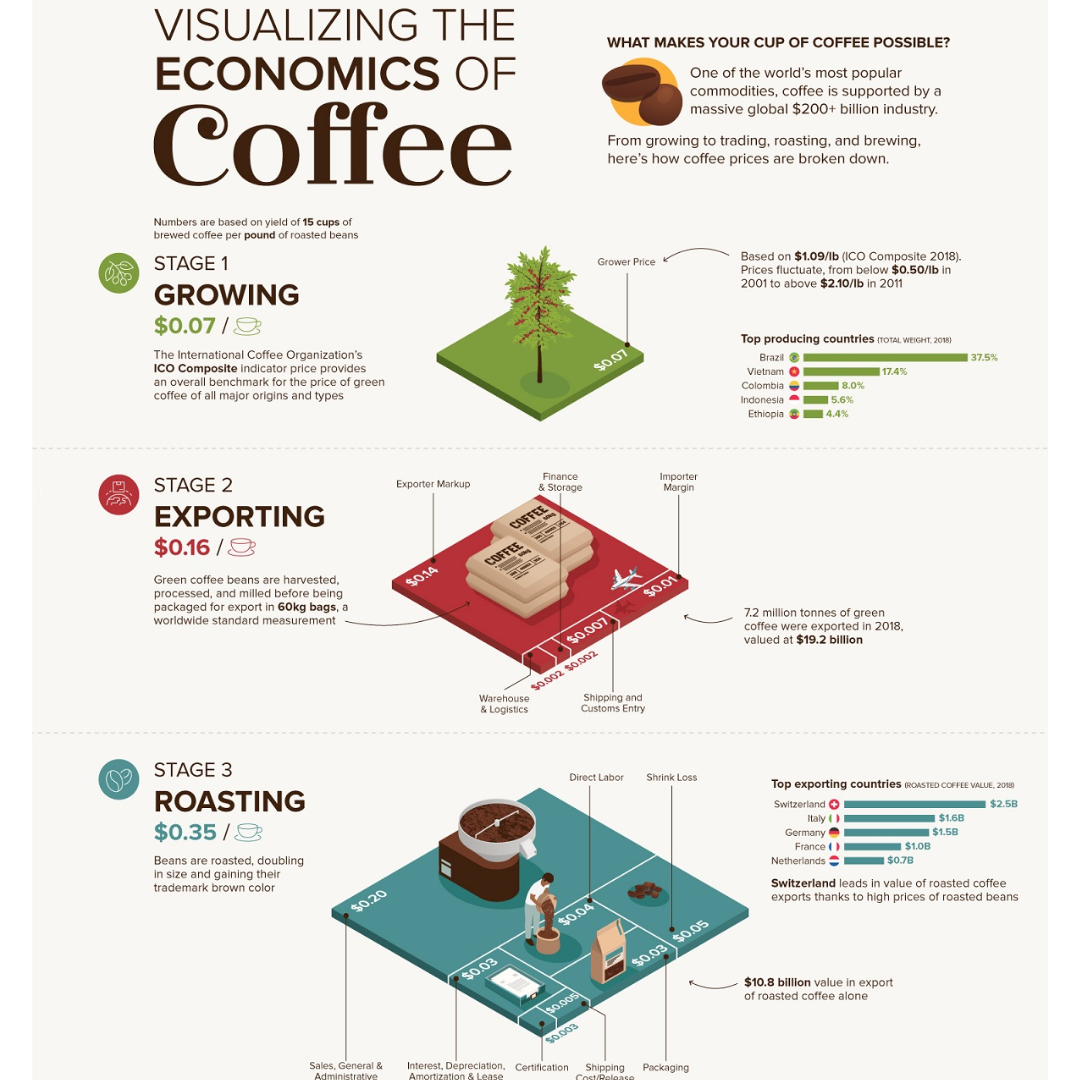How does Coffee Help Grow Economies ?
Posted by Cascara UK on July 15, 2024

According to Worldmetrics.org Brazil’s dominance as the world’s largest coffee exporter is underpinned by several key factors that have cemented its position at the forefront of the global coffee industry. Firstly, Brazil’s vast and diverse landscape offers ideal conditions for coffee cultivation. The country’s varied climate, fertile soil, and expansive geographical area allow for the production of different coffee varieties, including Arabica and Robusta, which cater to a wide range of market preferences. Moreover, Brazil has developed a robust agricultural infrastructure and advanced farming techniques, enabling efficient and large-scale coffee production. These factors collectively contribute to Brazil’s unparalleled coffee output, ensuring a steady supply to meet global demand.
Economically, coffee plays a pivotal role in Brazil’s financial landscape, significantly contributing to its GDP and providing employment to millions. The coffee industry is a major source of income for rural areas, driving local economies and fostering economic stability. In 2020 alone, Brazil exported over 44 million bags of coffee, generating billions of dollars in revenue. This steady influx of foreign exchange strengthens Brazil’s economic resilience and enhances its trade balance. Additionally, the thriving coffee sector supports various ancillary industries, such as processing, packaging, and transportation, creating a ripple effect that stimulates overall economic growth.
Beyond its direct economic contributions, the coffee industry in Brazil has a profound social impact, particularly in rural communities. Coffee farming provides livelihoods for millions of Brazilians, supporting families and improving living standards. The industry’s reliance on manual labour ensures that even unskilled workers can find employment opportunities, reducing poverty and fostering social stability. Furthermore, the success of Brazil’s coffee exports has propelled it onto the global stage, reinforcing its reputation as a leader in agricultural production. This prominence not only boosts national pride but also attracts investment and innovation in other sectors, driving long-term economic development and reinforcing Brazil’s position as an economic powerhouse.
